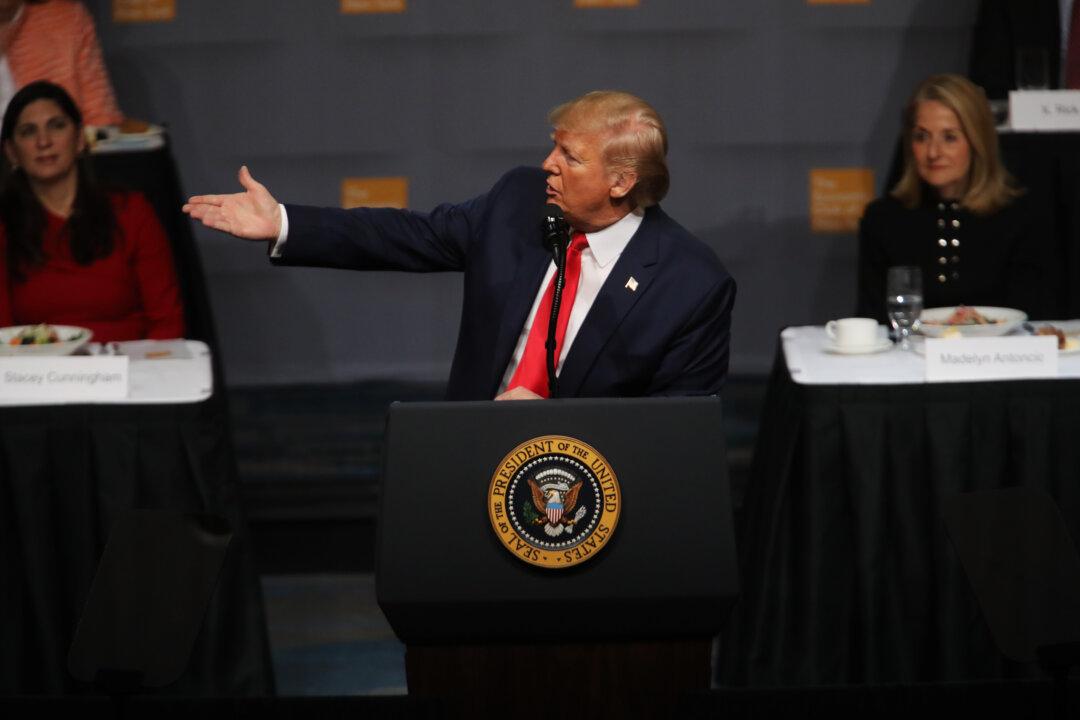President Donald Trump said the United States is “close” to reaching a phase one trade deal with China, while warning that he would “substantially raise” tariffs if the deal collapses.
“They are dying to make a deal. We’re the ones that are deciding whether or not we want to make a deal,” Trump said during a speech at The Economic Club of New York on Nov. 12.





